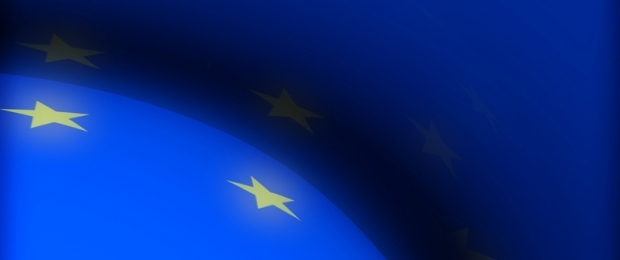
Opening Europe's final frontier
The European Union must make space policy a key element of its agenda in the next few years. Otherwise it will have little chance of meeting its ambitious objectives for peace and prosperity in the coming decades.
Until recently, space policy was generally viewed either as an exercise in esoteric scientific research, or as an expensive manifestation of national prestige. But today the situation is radically different. The scientific exploration of space remains very important, but more and more of this work is conducted through global collaboration. The International Space Station, now housing its very first Russian and American guests, is a prime example.
Space is also playing an increasingly important economic role. Terrestrial and near-space systems are being integrated to form the backbone of the emerging networked global economy. Many systems that are of vital importance to our economies, such as mobile telephony, are now wholly or partly dependent on space-based components. This process will only accelerate in the coming years.
At last March's Lisbon summit, EU leaders set themselves the target of making Europe "the most competitive and dynamic knowledge-based economy in the world" within a decade. The achievement of this goal will require major reforms in a range of areas - including a clear and consistent space policy.
Today, the world's total space expenditure is €70 billion, roughly half of which is commercially funded. The US dominance of space expenditure is near total. Around three-quarters of all the public funding is supplied by the US government, while the US supports around 95 per cent of the global expenditure for military-related space programs.
But Europe can compete if the political will is there. The success of the Ariane series of rocket launchers, which have captured more than half the global market for commercial satellites, is one example. Europe has a clear lead in the increasingly important area of global environmental monitoring. While the US focuses on the military aspects of space, Europe is proving more adept at investigating the no less serious environmental threats of the future.
Europe faces a stark choice. It can either become totally dependent on a US-designed and US-run space infrastructure, which is increasingly important for our own economic development. Or, it can make the effort to build the critical systems which will enable it to effectively compete, and thus credibly co-operate with the United States.
The current debate over satellite navigation systems illustrates this dilemma. The Global Positioning System (GPS) was established, and is still both funded and run by, the US Navy. Any soldier in America's armed forces, or those of its allies, needs just a small unit for receiving signals from a GPS satellite in order to know his or her exact location. A less precise version of GPS is available to civilian users - not only yachtsmen and explorers, but also, increasingly, to drivers of vehicles, trains and boats.
As positioning becomes an increasingly important part of the logistic infrastructure of our networked economies, European firms risk being put at a disadvantage versus US firms. They will need to be assured the same level of access - both to the information supplied by GPS, and to the technologies and standards that support these space systems.
To be sure of that access Europe needs to move ahead swiftly with its own scheme for a network of positioning satellites, known as Galileo. Galileo will be the largest infrastructure programme so far undertaken by the European Union. It involves an expenditure of more than €3 billion, as the system moves towards full operation during the later part of the decade. This is a small fraction of what the Common Agriculture Policy consumes. But it is still a substantial sum that requires careful attention. The private sector will have a key role to play in the project.
The EU will also need to consider how space technology can be employed to help preserve peace and stability in Europe and beyond. At the moment, the Western European Union's centre for analysing satellite imagery at Torejon in Spain falls under the jurisdiction of the High Representative Javier Solana. But this is by default rather than design, as the WEU is dismantled.
The EU must be prepared to go further. It should have access to the best information available on the environmental, security and others threats Europe might face. There are strong reasons for consolidating the various national European efforts in this area. Several civilian and defence-based space projects would benefit from being more closely integrated. The European Space Agency should be allowed to undertake projects with security and defence implications, as well as those which are purely civilian in nature.
The issues raised by space policy are rapidly becoming a normal part of terrestial politics. Thus the EU needs to integrate space policy into its other key policies. The European Council should take the opportunity to set strategic directions for the space policy of Europe, while the European Commission should help to co-ordinate the various national policies. The European Space Agency currently has no formal connection to the European Union. However, through a series of steps, the ESA should evolve towards becoming an agency of the EU. This would increase the chances of the EU conducting successful policies for both peace and prosperity in the decades ahead.
